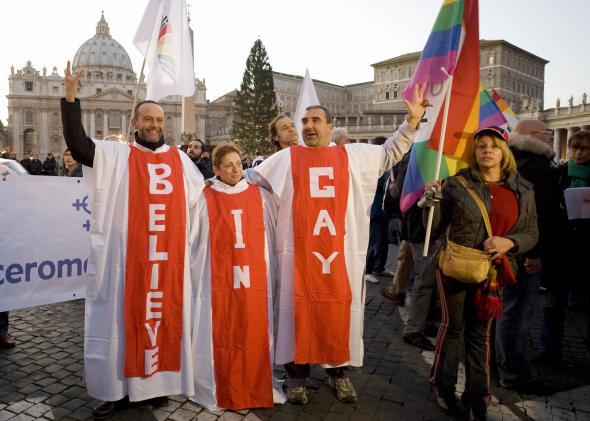This article originally appeared in The Conversation.
Negotiations on the United Nations’ 15-year development strategy, which involve all 193 member states, have at last produced a set of ambitious Sustainable Development Goals. These focus on social justice, poverty, human rights, development, and other related areas that require concerted effort over the coming years.
The goals incorporate strategies to protect and ensure the equality of individuals belonging to vulnerable groups—all individuals, that is, except those who belong to sexual orientation or gender identity minorities.
The international human rights treaties on eliminating discrimination against women and upholding the rights of the child are two of the most widely ratified by countries across the globe, with only a handful of countries yet to sign up to those provisions.
While the discrimination these treaties target still goes on, simply getting countries to sign up has a very noticeable effect on their behavior, which in turn helps set an international standard for what’s acceptable. Even states that routinely discriminate against women and children—who fail to ban underage marriages, refuse to allow married women to own property, or allow widespread child labor—are reticent to admit that they are discriminating against those individuals. By and large, countries don’t like to concede that they discriminate against vulnerable groups, even when they do so systematically.
Other vulnerable groups are afforded similar treatment. Few states would dare to admit publicly to disliking or hating racial or religious minorities, people with disabilities, the elderly, and so on. That would shame them in the international arena, and would also cause uproar among many national populations.
But the last bastion of seemingly “acceptable” discrimination among member states is discrimination against LGBT people. And the United Nations has done precious little to change this.
Time and again, the United Nations has failed to take positive action to protect sexual orientation and gender identity minorities. More perniciously, there have been repeated steps backward in terms of U.N. actions that condone or even encourage such discrimination within member states’ own territories.
The latest move to keep LGBT people out of the Sustainable Development Goals was reported by the website Pass Blue, which covers developments at the United Nations. It’s not yet clear which countries spearheaded the move.
Countries such as Russia and some of its allies from the Organisation of Islamic Co-operation, of which it is a member, have worked hard to stop other recent U.N. initiatives from protecting the rights of LGBT people. They successfully blocked the development of an international LGBT human rights treaty, which would have brought that vulnerable group’s rights into the same protection sphere as other such groups.
That was followed by a move to protect the values of “traditional families”—an agenda being pushed at the U.N. Human Rights Council by those same countries.
Insidious moves are also underway on other fronts. In March 2015, Russia tried to block the United Nations from treating same-sex marriages of its employees on an equal footing as heterosexual marriages, despite the advancement of equal marriage across the globe.
In many ways, we ought not to be surprised at the way so many U.N. member states react to the very idea of LGBT rights. More than 70 countries legally discriminate against and/or criminalize LGBT people, including many politically and economically powerful Islamic, African, Caribbean, and Eastern European states across four of the five U.N. regional groups. This means a sizable minority of the United Nations’ members can easily flex its collective muscle whenever it wants to make sure that gay rights are kept off the table.
This, sadly, is to be expected. What is far more shocking is that the majority of states—global north countries, Latin American states, and social moderates in Asia, Africa, and Eastern Europe—so often keep silent when it comes to LGBT issues and fail to speak up when they could make a difference.
It is time the majority of U.N. states put aside trifling economic and political considerations and joined together to ensure that LGBT issues are no longer sidelined. That means standing up to the bullying holdouts who are still allowed to thwart progress at every turn.
